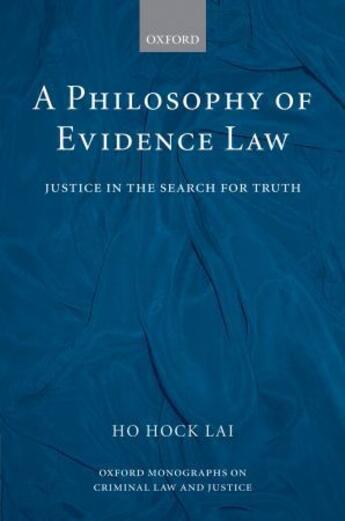-
Date de parution : 16/09/2010
-
Editeur :
Oxford Up Elt
-
EAN : 9780199228300
-
Série :
(-)
-
Support :
Papier
Résumé:
Offers a novel and distinctive cross-disciplinary perspective on the law of evidence, taking into account both moral and epistemic considerations Provides comparative analysis incorporating both theory and the substantive law from many jurisdictions Examines character evidence and hearsay -... Voir plus
Offers a novel and distinctive cross-disciplinary perspective on the law of evidence, taking into account both moral and epistemic considerations Provides comparative analysis incorporating both theory and the substantive law from many jurisdictions Examines character evidence and hearsay - often analysed in the context of the risk of error, but rarely explored from a moral perspective The dominant approach to evaluating the law on evidence and proof focuses on how the trial system should be structured to guard against error. This book argues instead that complex and intertwining moral and epistemic considerations come into view when departing from the standpoint of a detached observer and taking the perspective of the person responsible for making findings of fact. Ho contends that it is only by exploring the nature and content of deliberative responsibility that the role and purpose of much of the law can be fully understood. In many cases, values other than truth have to be respected, not simply as side-constraints, but as values which are internal to the nature and purpose of the trial. A party does not merely have a right that the substantive law be correctly applied to objectively true findings of fact, and a right to have the case tried under rationally structured rules. The party has, more broadly, a right to a just verdict, where justice must be understood to incorporate a moral evaluation of the process which led to the outcome. Ho argues that there is an important sense in which truth and justice are not opposing considerations; rather, principles of one kind reinforce demands of the other. This book argues that the court must not only find the truth to do justice, it must do justice in finding the truth.
Readership: Scholars and advanced students of legal theory, moral philosophy, evidence and court procedure, and epistemology
Donner votre avis








